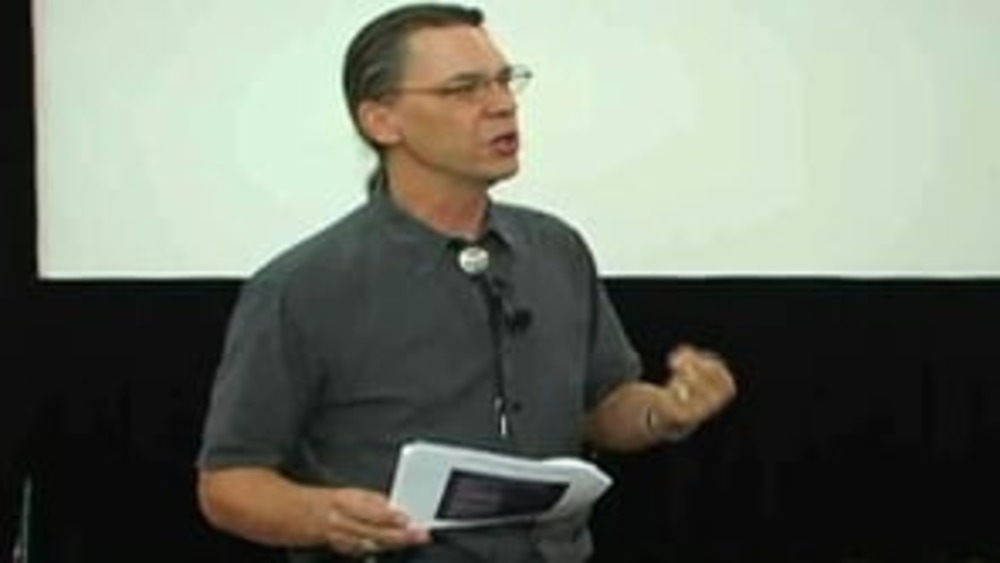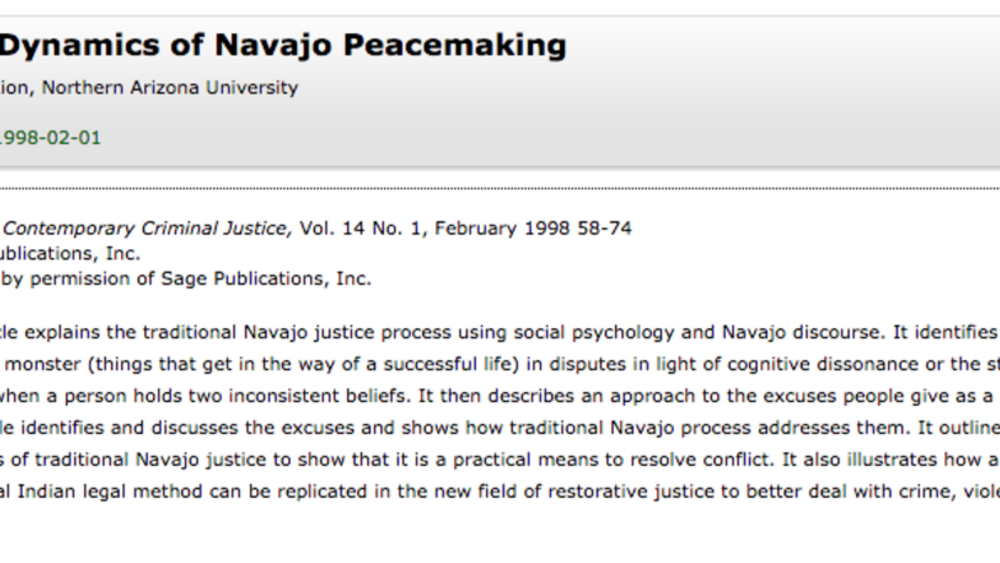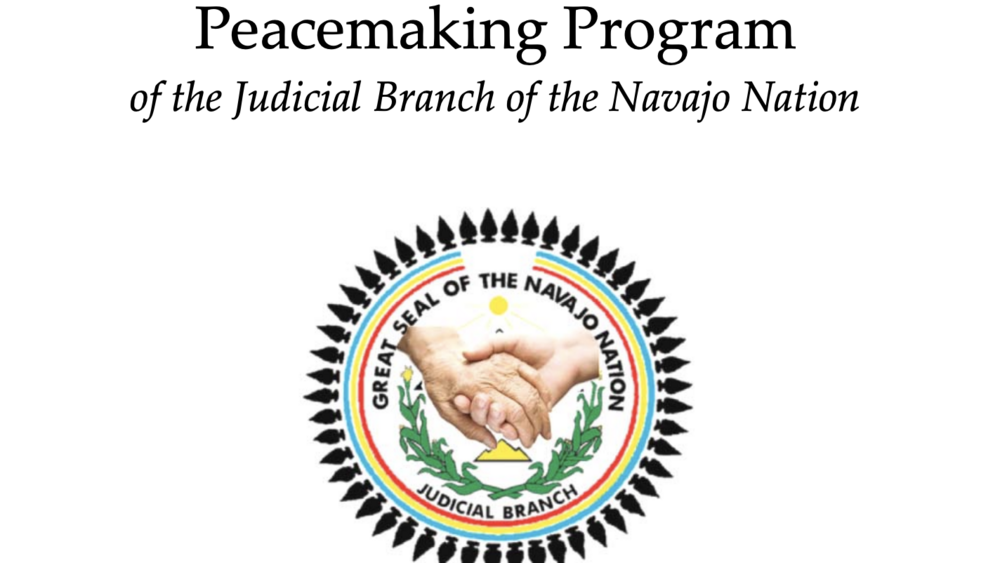Indigenous Governance Database
tribal common law

From the Rebuilding Native Nations Course Series: "Justice Systems and Cultural Match"
Professor Robert A. Williams, Jr. argues that Native nations can reintegrate their unique cultures and common law into their governance systems, specifically their systems for resolving disputes and providing justice to their citizens and others.

The Dynamics of Navajo Peacemaking
This article explains the traditional Navajo justice process using social psychology and Navajo discourse. It identifies the nayee or monster (things that get in the way of a successful life) in disputes in light of cognitive dissonance or the state of tension when a person holds two inconsistent…

Peacemaking Program of the Judicial Branch of the Navajo Nation
The concept of peacemaking or hózh̨óji naat’aah goes back to the beginning of time and is embedded in the journey narrative. In fact, according to the journey narrative, the Holy People journeyed through four worlds. In the course of their journey, they came upon many problems, which were either…
![Tribal Law as Indigenous Social Reality and Separate Consciousness: [Re]Incorporating Customs and Traditions into Tribal Law Tribal Law as Indigenous Social Reality and Separate Consciousness: [Re]Incorporating Customs and Traditions into Tribal Law](/sites/default/files/styles/resources/public/resources/Screen%2520Shot%25202016-10-11%2520at%25201.22.13%2520PM.png?itok=pvkjKhR1)
Tribal Law as Indigenous Social Reality and Separate Consciousness: [Re]Incorporating Customs and Traditions into Tribal Law
At some point in my legal career, I recall becoming increasingly uncomfortable with the inconsistencies between the values in the written law of various indigenous nations and the values I knew were embedded in indigenous societies themselves. The two are not entirely in harmony, and in fact, in…
